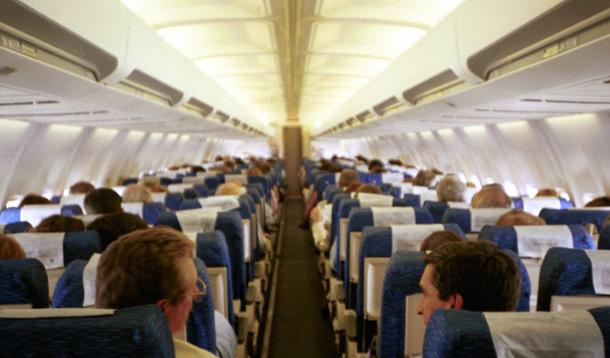
Never have I received more hate mail than when I wrote about whether peanuts and nuts on airplanes are a risk to those with severe allergies. I was told that as someone who represents the allergy community, I was being reckless by spreading misinformation. I was told I should be ashamed of myself for being a negligent allergy advocate. I responded with science -- all I could say is that the science demonstrated different results than what anecdotal stories people presented were showing. I know science isn't always right; scientists make mistakes, too. But I trust studies more than I trust the friend-of-a-friend-of-my-aunt's-third-cousin. That said, I always supported the mission to remove nuts and peanuts from on board planes, even sharing the petition asking the federal government to ban them aboard airplanes.
I know the fear of managing travel with a child who has life-threatening allergies, and if removing a snack product from an airplane can alleviate that stress for someone, I am happy to help. But I also want real answers, and want to know the real risks and facts about allergies, so I eagerly read the study results that come my way.
Here we are again with a study that demonstrates nuts and peanuts (and sesame) pose no risk to severely allergic passengers on aircraft. The study, conducted by the Canadian Transportation Agency, findings indicate the following (bolding is mine):
"Dr. Greenhawt notes that although inhalation is commonly believed to be a route of exposure, there is no data to support this. On the contrary, Dr. Greenhawt emphasizes that the data that does exist consistently shows that peanut allergens do not aerosolize. Moreover, Dr. Greenhawt points out that there have been no oral or inhalation provocation studies to support the theory that nasopharyngeal or oropharyngeal mucosal exposure can trigger an allergic reaction. For its part, NRC indicates that allergic reactions from unnoticed ingestion are being incorrectly attributed to inhalation, including ingestion as a result of touching a surface on which the allergen has settled and then unknowingly ingesting the allergen.
Both expert reports cite findings from scientific studies that examined measurements of airborne concentrations of peanut protein in the environment and note that none of the results provided proof that peanut allergens can aerosolize. Moreover, even if these allergens could aerosolize, as discussed below, aircraft circulation and filtration systems are such that they do not circulate in the aircraft cabin."
Additionally, with regards to skin contact of allergens, Dr. Greenhawt says: "that there is minimal risk of anything more than a local irritation reaction from casual skin contact with the allergen. Dr. Greenahwt's report references a 2004 study in which peanut butter was smeared on the skin of participants. The study found that none of the participants demonstrated any systemic allergic reaction to skin contact (or inhalation contact) and the authors of the study concluded that casual environmental contact with peanut butter was highly unlikely to cause generalized reaction of any symptoms, "debunking that such exposures are a potential danger in a public venue"." Even accidental ingestion risk is low, apparently.
The only recommendation is to create a buffer area around those with severe allergies to peanuts, nuts, and sesame, by having passengers around them refrain from eating the allergens, but to not ban them across the whole plane.
This is big news. Will it stop the debate? Unlikely. But it's one more study that puts my mind a little at ease when we're trapped in a metal box in the air with our allergic son. Bring on the hate mail, I know it's coming. . . but I'm always going to rely on scientific studies.
For information about individual air carrier policies on nuts, peanuts and sesame on board aircraft, click HERE.